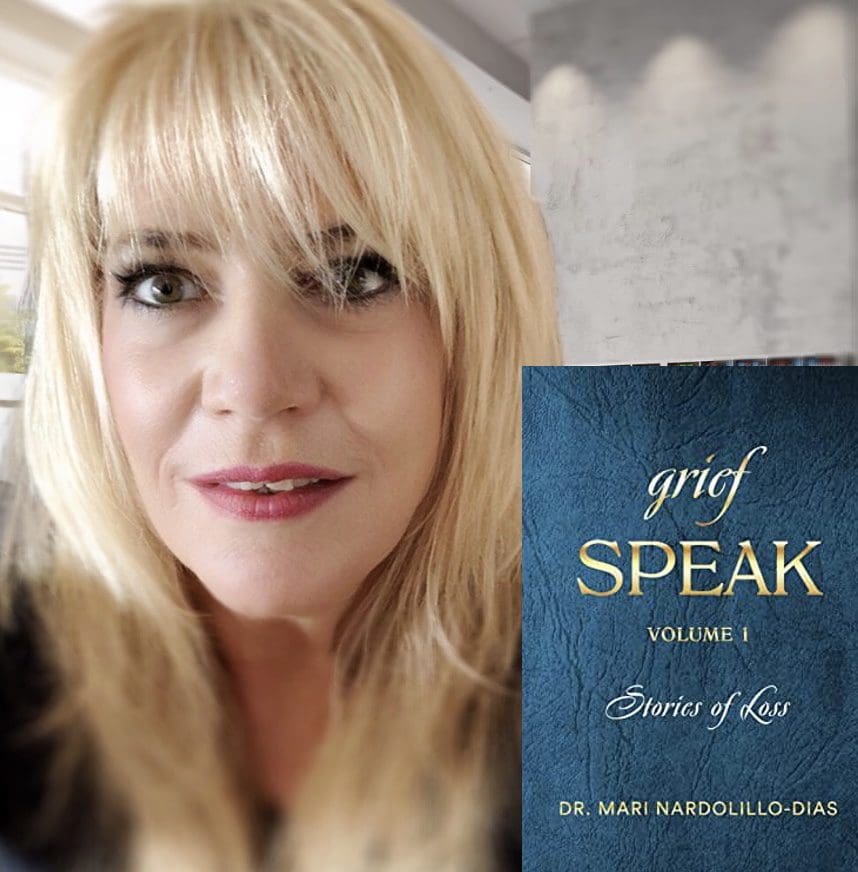Search Posts
Recent Posts
- Outdoors in RI: Help keep recreation areas clean. Invasive Milfoil, trash. 2A update – Jeff Gross July 26, 2024
- Real Estate in RI: Highest-ever sale in Queen’s Grant, EG $1.25M, by Residential Properties July 26, 2024
- Homeless in RI: Gov. Newsom issues Executive Order. Remove California’s encampments. July 26, 2024
- Let the games begin. XXXIII Summer Olympics – John Cardullo July 26, 2024
- GriefSPEAK: What would you do? – Mari Dias Nardolillo July 26, 2024
Categories
Subscribe!
Thanks for subscribing! Please check your email for further instructions.

GriefSPEAK: Do you really want me to tell you how I feel? – Mari Nardolillo Dias
by Mari Nardolillo Dias, contributing writer
GriefSPEAK: Do you really want me to tell you how I feel – Mari Nardolillo Dias
By: Mari Nardolillo Dias
Gretchen’s grief over her husband’s sudden death seven months ago has taken its toll on her both physically and emotionally. For those who know her, it was her loss of weight that was most apparent. Gretchen told me (like many of my clients) that she does her grocery shopping in another town, in an attempt to avoid familiar faces and awkward greetings.
On one recent occasion Gretchen ran into an old acquaintance (Deirdre) whose children went to elementary school with her children. “Gretchen, how are you doing?” asked Deirdre, in a quiet, somber, appeasing tone. Gretchen told me she wanted to say, “Really? Really, Deirdre? Do you REALLY want to know how I’m doing?” Gretchen understands that people are not being malicious or insensitive, but rather awkward in not knowing really what to say.
“You look good though, Gretchen!” You’ve lost weight!” “Yes”, responded Gretchen, “over 20 pounds”, delivering her response with chagrin as she was a slight woman to begin with. “Oh, I wish I could lose even half of that!”, exclaimed Deirdre. “I’ve been on a diet for a month, you know, suffering the lack of pastries and the like. I’ve only lost 4 pounds in a month. Good for you! You look great.”
Again, Gretchen looked at me while explaining this interaction. “Again, I wanted to say, “Really? Really? You would want to lose your husband suddenly so you can lose weight?” Then she posed a question to me: “Why does everyone think that if you’re thin, you’re happy? “
This was a powerful question. We live in a society where thinness is celebrated. Fat shaming is rampant. There are several studies that indicate that we believe that “beautiful is good, and beautiful and thin is even better.” We cannot understand how a thin, attractive person could possibly have murdered her spouse. Studies with juries show that jurors are more likely to acquit an attractive, thin person than an unattractive and/or overweight individual.
One famous study was conducted with college students enrolled in a Psychology course. The researchers showed them two videos, the first was a very attractive, young woman (Girl A) and the second was a fairly unassuming, overweight young girl. (Girl B). Both girls read the same script: “I am so depressed. I am so sad and don’t want to live anymore. No one loves me. No one understands me.”
The psychology students were then asked to provide advice to the two girls. Over 90% of the students recommended that Girl A should go out for some retail therapy, get a massage, go out to dinner with friends, and she’ll be fine. Over 95% of the students recommended that Girl B get therapy as soon as possible, and potential hospitalization for severe mental health issues. Why? Because how could someone as thin and attractive as Girl A have a serious problem? This is obviously unfair, yet true.
Deirdre expected Gretchen to be doing well because she’s thin. Thin does not equal happy. Let’s be fair to our grievers. I know how awkward it can be to run into a griever and say something you wish you hadn’t. Think first. One hug. Say, “There are no words.” As Gretchen states, thin is not happy.
_____

Dr. Mari Dias is a nationally board-certified counselor, holds a Fellow in Thanatology and is certified in both grief counseling and complicated grief. Dias is a Certified death doula, and has a Certificate in Psychological Autopsy.
She is Professor of Clinical Mental Health, Master of Science program, Johnson & Wales University. Dias is the director of GracePointe Grief Center, in North Kingstown, RI. For more information, go to: http://gracepointegrief.com/ .
Dias is the author of GriefSPEAK, Vol. 1: Stories of Loss

